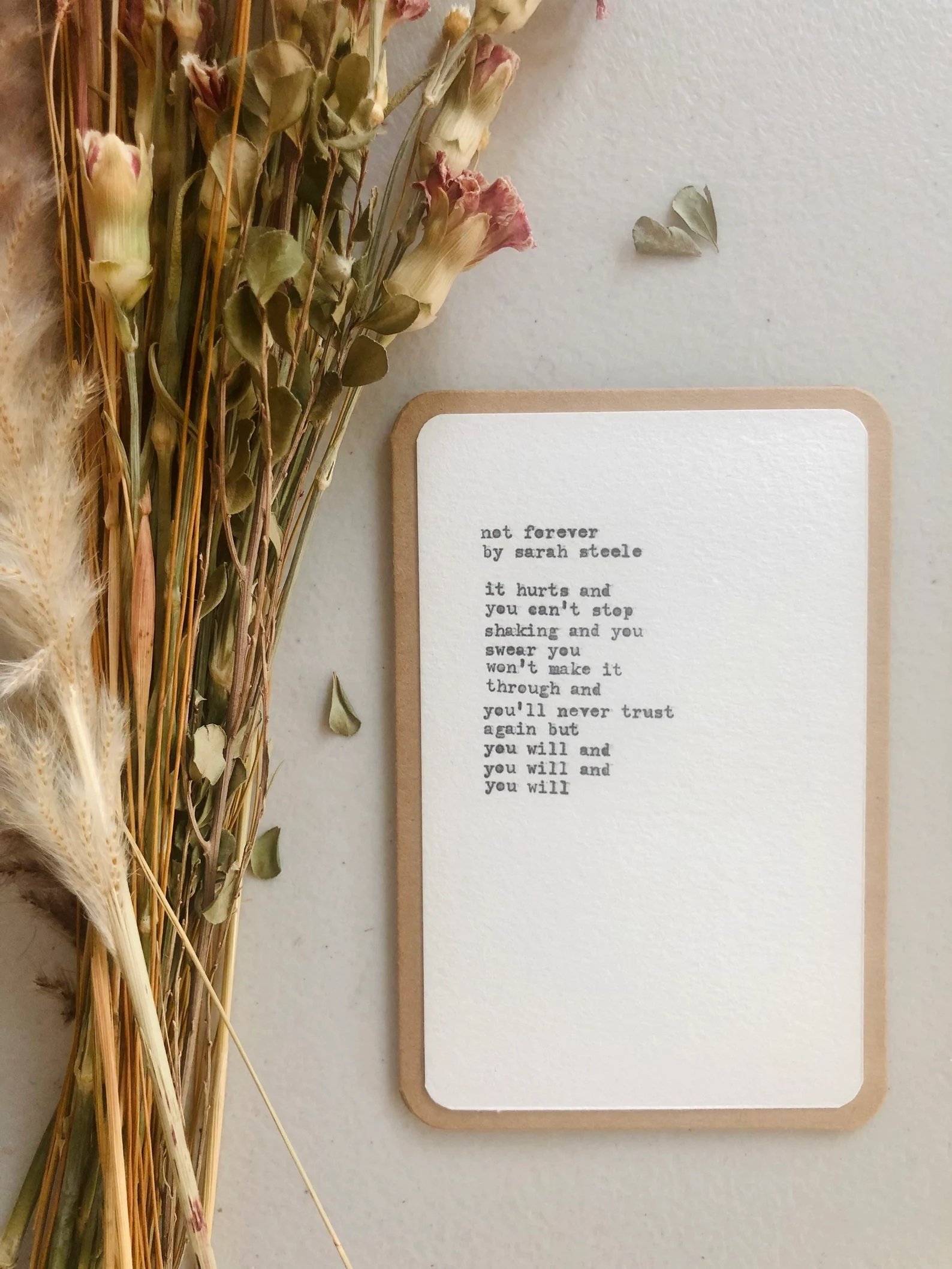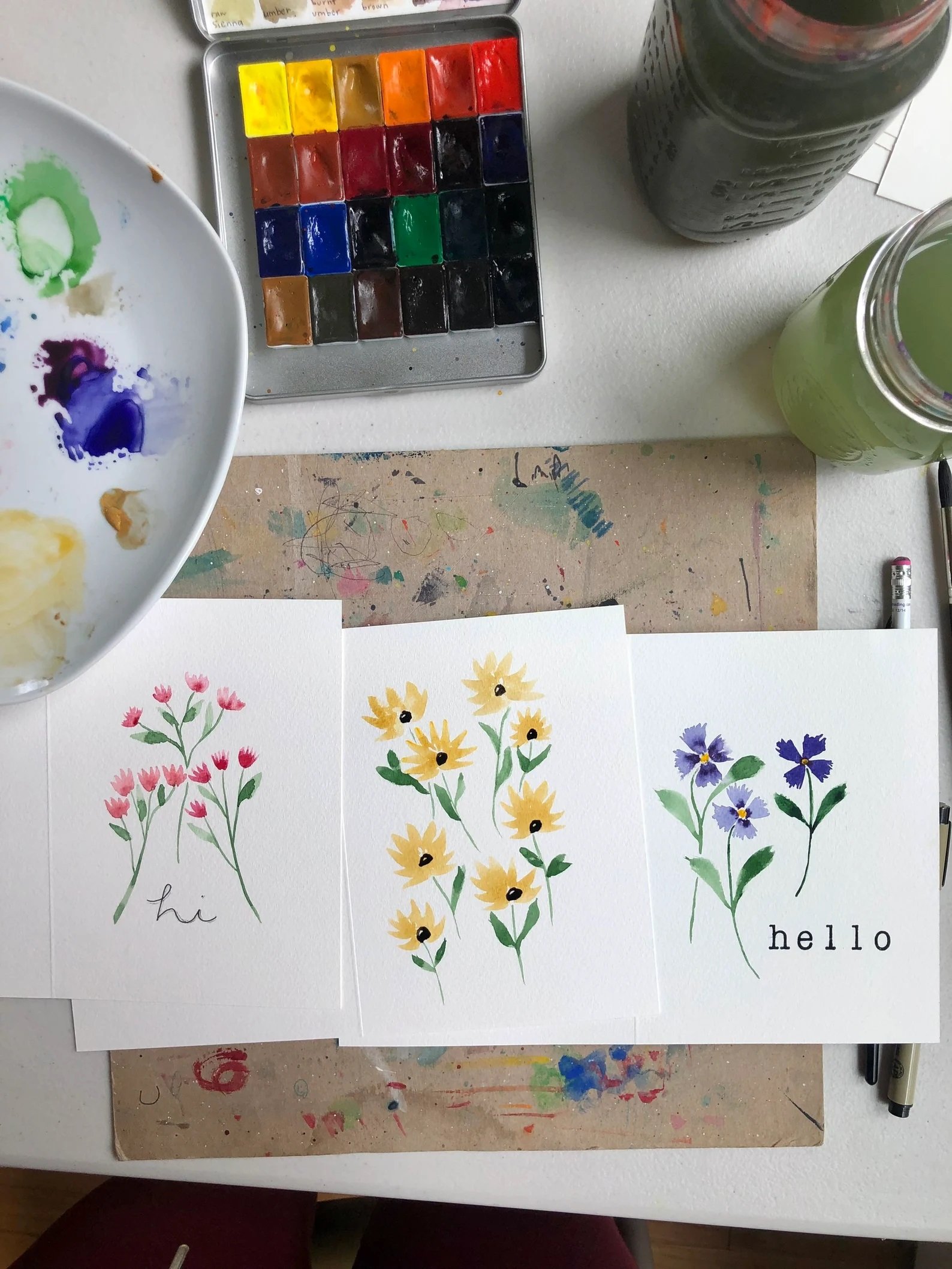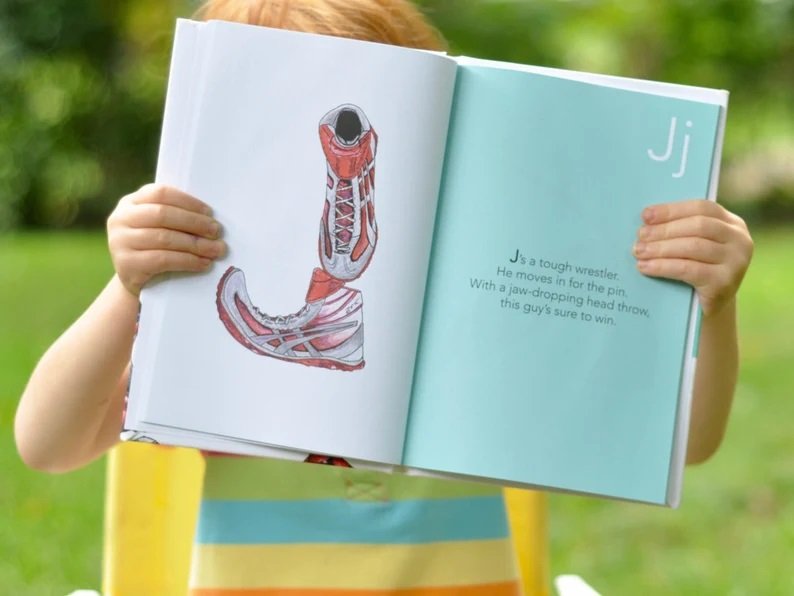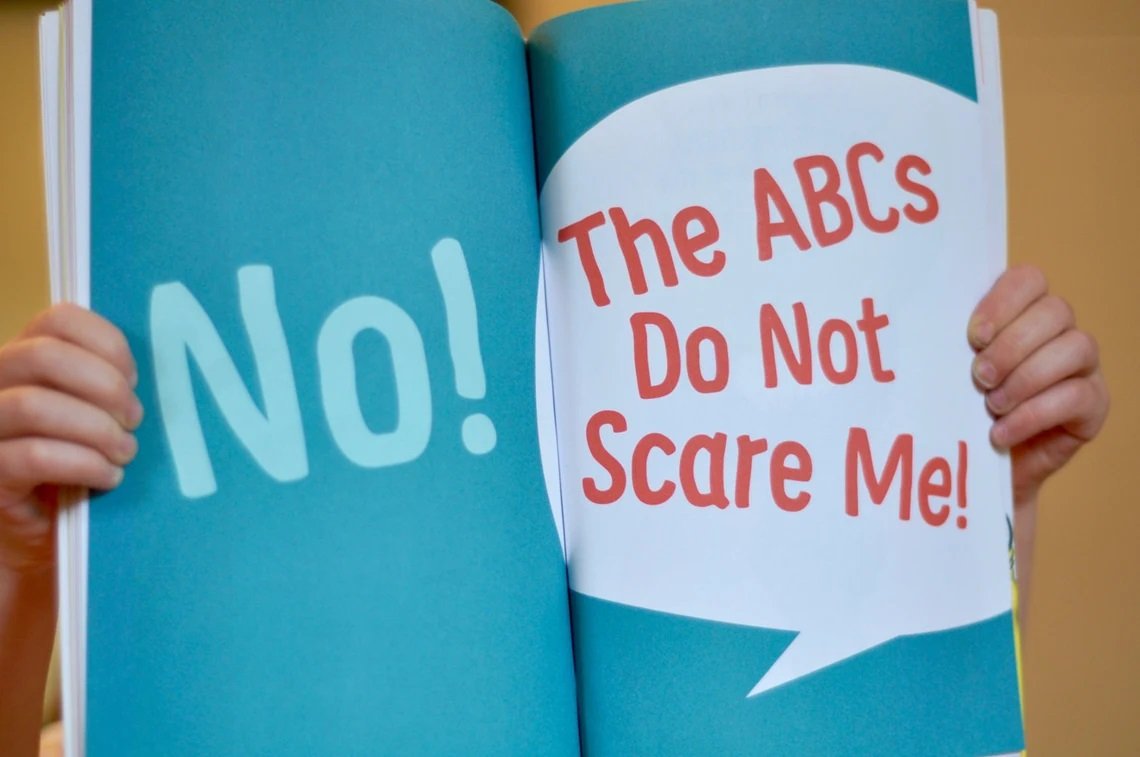Breakdowns, Boundaries, and a Better Interpretation (Part 1 of The Boundaries Series)
By Sarah Steele
My serving roots go deep.
As the oldest of ten children, an empathetic listener, and a high-capacity follower of Jesus, I attracted other people’s projects and problems and learned to bear responsibility for all needs I encountered at the expense of my own. This seemed right to me—after all, aren’t we supposed to “deny ourselves,” “bear each other’s burdens,” and “look to the interests of others”? How could I do those things if I allowed my own needs and desires to have any place in my life?
Resentment began to build in my heart—toward doing things I did not want to do but felt obligated to, toward those who asked, and especially toward other believers as I watched them easily reply to requests with a “no.” What kind of Christians were they anyway to leave me with all this work? Guilt soon followed resentment (what kind of a Christian was I to feel such bitterness?), and I purposed to work harder, be more selfless, and have a happy heart–goshdarnit!
Truthfully, Scripture was not intended to be pulled apart for its pithy statements; it was given to us as a whole and must be read within its contexts. It wasn't until I did a long study on boundaries in the Bible that I finally found a new way to live. Let’s look at one of the above verses together within its surroundings and see how a faulty interpretation can ruin a good thing.
Galatians 6:2 says, “Carry one another's burdens, and in this way you will fulfill the law of Christ.” I understood this to mean that I must always carry others’ burdens. Christian Sister is tired? Carry her childcare burden! Fellow believer is busy? Carry his meal-prep burden! Someone complains of their to-do list? Gather some friends to check three off for them!
Of course, these can be kind gestures, but when service is offered in obligation because a single biblical phrase has been used as a demanding mantra, problems will follow.
And problems did follow in my life. I learned to hear any need whatsoever and become personally responsible for it. If God allowed me to know about this need, he probably wants me to do something about it. It wouldn’t be until many years later that a wise friend would teach me that “opportunity is not a mandate to say yes.” In the meantime, I would become overwhelmed with the needs I encountered daily, would leave no room for other servers, and would come to point my resentment toward God himself for the burdensome laws I thought I had found in his Word.
A few verses down, Galatians 6:5 informs us, “For each one will carry his own load.” No one had ever quoted that verse at me. Surely I had read it but skipped over its meaning in favor of burden-carrying. In fact, I didn’t really notice it until I read it in Boundaries by Cloud and Townsend. This was after I had changed my eating habits at someone else’s request, after I had made dinner for three families in a single night, after I had washed every piece of fabric in another’s house, after I had volunteered in the church kitchen wearing my one-week-old, after I had given milk from my own body to someone in need for many months. I read Galatians 6:5 and gasped. I realized I had a discernment issue—when are life’s tasks a burden…and when are they a load? Here is where the Greek changed everything for me.
The word burden in verse two is the Greek word báros, meaning a load, weight, heaviness, trouble. This word is related to báthos, meaning of the deep, such as deep poverty. It is a weight that could sink a ship. This is the kind of burden the Pharisees loaded down their followers with.
But the word load in verse five is the Greek word phortíon, meaning the freight of a ship. This is the normal amount that will not sink that ship; it is what the ship was designed to carry. Interestingly (beautifully!), it is also the word Jesus uses when he tells us that his “yoke is easy and (his) burden (phortíon) is light.” It is something we were designed to carry!
I took stock of my actions. Over and over, I had taken the phortíon of friends in my life and placed it onto my own ship, and I had come to the point where my ship finally sank.
For a while after this sinking, I was unable to care for burdens of any weight for any people (including myself). Others stepped in for me, carrying both my báros and my phortíon, as I floated to the surface and surveyed the damage…and began to heal.
I found it very difficult to discern between the two types of cargo for a very long time. But graciously, the Lord has grown my vision. We offer meals (typically a phortíon type of load) for new moms or those who are ill because the extra load they are carrying is a báros. But I can also simply empathize with and pray for the ones whose phortíon feels greater to them in any particular season. I can serve, but I don’t have to just because a difficulty has been expressed.
Sometimes the Lord takes us through difficulties to strengthen our own capacity…or to grow our dependence on him. I had mistakenly encouraged people to depend on me. Now, I am able to entrust others to his good care and trust that he can use more than just me.
I have been diligently writing a book of poetry that walks through my own journey of over-serving, setting boundaries, sinking, being rescued, and coming to healing. I offer you two of the poems here. May you too learn to trust the Lord fully, to discern your role in the needs around you, and so to find rest for your own weary souls.
faulty interpretation
by sarah steele
you bear my burden;
i’ll carry your load.
that’s the way
the scripture goes.
but how to do that
i don’t know.
so i begin to
overload
and friend-bulldoze,
keep face composed,
don’t dare expose,
yes, please impose!
until i finally implode,
and slowly, next i
decompose,
while rows of
heart-shaped dominoes
fall shattered there
upon the road.
the best samaritan
by sarah steele
the good samaritan had boundaries.
listen in—i’ll tell you more:
because he was my greatest example
of putting others’ needs before
my own, but then i read the story again
in my Bible i knew so well.
and i saw that, indeed, he carried him far
and paid for his stay, but what’s bizarre
is that i never noticed he didn’t dwell.
he went on his way and wished him well
and only returned to pay the bill,
but i hadn’t seen that part until—
i’d picked up and carried and fed all his kids,
offered great counsel and sorted all lids,
purchased new housing and clothing amid
trying to keep my own family alive,
and slowly, but surely, i started to die.
still i stomped and kept helping,
since i knew i could be
the BEST samaritan
with no need for boundaries.
in the end, i was the body
on the side of the road,
and i have much still to learn
of all the things that i “know.”
FIND SARAH’S WATERCOLORS AND POETRY ON ETSY:
CHECK OUT SARAH’S ALPHABET CHILDREN’S BOOKS:
SARAH STEELE
Sarah is a poet and lifelong teacher. These days, that looks like leading her four lively redheads in their Michigan homeschool and engaging with students of all ages in poetry workshops, watercolor classes, nature study, and neighborhood book clubs. She thrives on community that goes deep and is grounded on biblical truths. You can find Sarah’s poems in The Fallow House, Calla Press, The Way Back to Ourselves, and other publications. She has published two alphabet books with her illustrator husband (yes, also a redhead) and is preparing to publish a poetry memoir about boundary-less living, codependency, debilitating anxiety, and the life-changing effect of a gentle counselor. She is also an editor at The Way Back to Ourselves.
You can find Sarah’s work on Instagram @bysarahsteele where she shares thoughtful poetry, original watercolors, musings about boundaries, and the occasional song that bubbles up and over.








